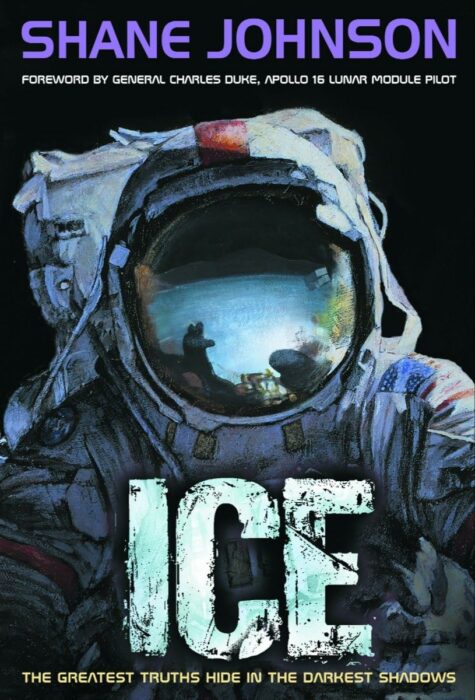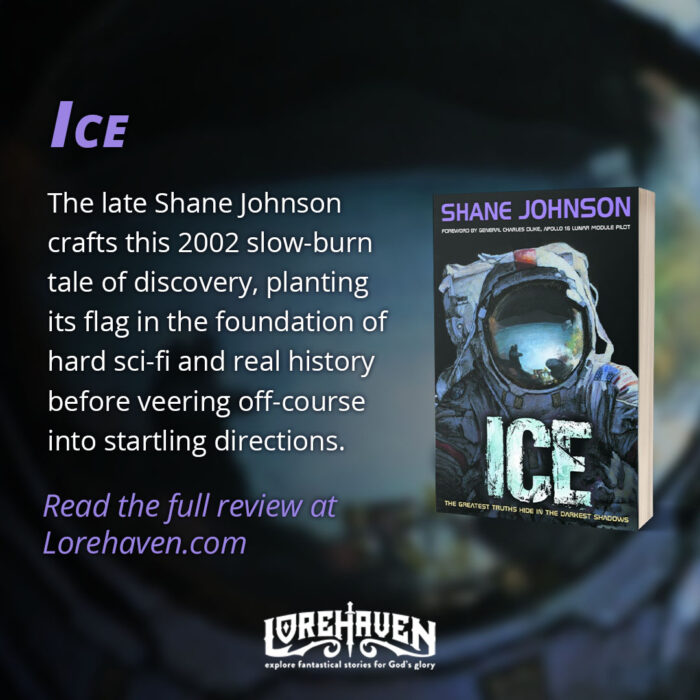
Ice
The greatest truths hide in the darkest shadows.
In the late 1960s, NASA proposed hardware and mission parameters for an extended Apollo program that never materialized. Decades later, the existence of ice beds at the lunar south pole was discovered by NASA’s space probe Clementine and confirmed by the lunar satellite Lunar Prospector. Now, author and Apollo missions historian Shane Johnson explores the fantastic possibilities of what might have transpired, had the more ambitious version of the Apollo program gone forward as originally planned.
It is February, 1975. Apollo 19, the last of the manned lunar missions, has successfully landed. Exhilarated and confident, Commander Gary Lucas and Lunar Module pilot Charlie Shepherd set out to explore a vast, mysterious depression at the lunar south pole.
There, in the icy darkness—where temperatures reach 334 degrees below zero—the astronauts search for the fragments of crystalline bedrock the scientists back home had hoped for. But when tragedy strikes, the men are driven deeper into the lethal realm, where they find much more than they bargained for, including a strange machine that seemingly transports Lucas back to a pre-flood Earth, and startling evidence that could transform mankind’s perspective on all creation and its Creator—if only the men could miraculously make their way back home to earth to reveal it.






























Have you read Ice ? Share your own review.